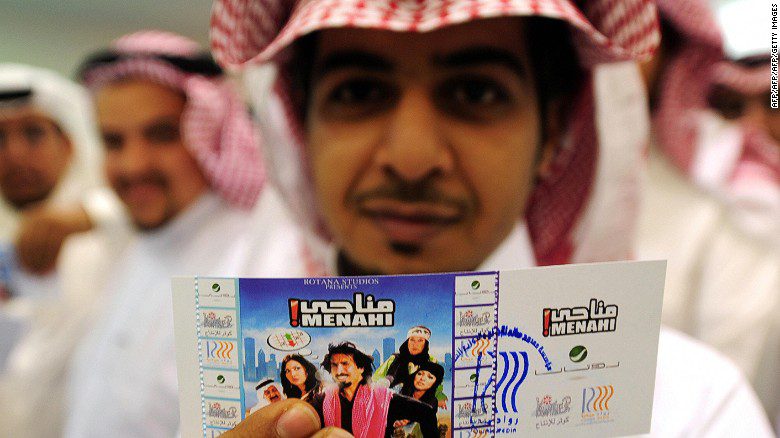B1 – Intermediate
Holidays are not just a time to stay at home or do some outdoor activities. Most of the holidays that are celebrated have historical and religious significance.
Read the list of holidays celebrated in other countries and share your own.
Winter
Hanukkah
For eight days each November or December, Jews light a special candleholder called a menorah. They do it to remember an ancient miracle in which one day’s worth of oil burned for eight days in their temple. On Hanukkah, many Jews also eat special potato pancakes called latkes, sing songs, and spin a top called a dreidel to win chocolate coins, nuts, or raisins.
St. Lucia Day
To honor this third-century saint on December 13, many girls in Sweden dress up as “Lucia brides” in long white gowns with red sashes, and a wreath of burning candles on their heads. They wake up their families by singing songs and bringing them coffee and twisted saffron buns called “Lucia cats.”
Christmas
People celebrate this Christian holiday by going to church, giving gifts, and sharing the day with their families. In some parts of Europe, “star singers” go caroling — singing special Christmas songs — as they walk behind a huge star on a pole.+
Kwanzaa
Kwanzaa, which means “First Fruits,” is based on ancient African harvest festivals and celebrates ideals such as family life and unity. During this spiritual holiday, celebrated from December 26 to January 1, millions of African Americans dress in special clothes, decorate their homes with fruits and vegetables, and light a candleholder called a kinara.
New Year
In Ecuador, families dress a straw man in old clothes on December 31. The straw man represents the old year. The family members make a will for the straw man that lists all of their faults. At midnight, they burn the straw man, in hopes that their faults will disappear with him.
Lunar New Year
Lunar New Year is observed in many countries that follow lunar calendars, including Taiwan, Vietnam, Singapore, China, Malaysia, and more. Lunar New Year can be celebrated in January, February, March, April, September, or November, depending on the lunar calendar, but February and April are the most common times. Lunar New Year traditions vary from culture to culture. Some examples include exchanging red envelopes or silk pouches containing money, setting off fireworks, playing games, eating traditional dishes, cleaning the house, and holding parades with colorful costumes.
Mardi Gras
The time of Lent is a solemn one of reflection for Christians, so the Tuesday before Lent begins is a time of merry-making for many people around the world. In New Orleans, people wear costumes and attend huge parades for the festival of Mardi Gras. Brazil’s Carnaval also features parades, costumes, and music. This day is also known as Shrove Tuesday. In England, some towns have pancake contests in which women run a race while flipping a pancake at least three times.
Spring
Basanth
In Pakistan, boys celebrate the first day of spring in the Muslim calendar with exciting kite-fighting contests. After putting powdered glass on their strings, they use the strings to try to cut off each other’s kites. Whoever keeps his kite the longest wins.
Holi
For this Hindu spring festival, people dress in green. Children then squirt each other with water pistols filled with yellow- or red-colored liquid. They also blow colored powder on each other through bamboo pipes. Everyone gets soaked — and colorful — to celebrate spring.
Songkran
In Thailand, a special three-day water festival on April 13–15 marks Songkran, the Buddhists’ celebration of the new year. Parades feature huge statues of Buddha that spray water on passersby. In small villages, young people throw water at each other for fun. People also release fish into rivers as an act of kindness.
Aboakyere
The Effutu people of Ghana make a special offer to the god Panche Otu each spring with the deer-hunting festival. Two teams of men and boys, dressed in bright costumes, compete to be the first to bring back a live deer to present to the chief. Then they all dance together.
Easter
On Easter, Christians celebrate the resurrection of Jesus Christ. People attend church and also enjoy different Easter customs. In Germany, people make “egg trees” that are decorated like Christmas trees. In Hungary, boys sprinkle girls with perfumed water — and in return, girls prepare a holiday dinner for them.
Passover
The highlight of this major Jewish holiday is the Passover seder. During these two special dinners, families read from a book called the Haggadah about the ancient Israelites’ exodus, or flight, from Egypt more than 3,000 years ago. As they honor their ancestors, Jews reaffirm the importance of freedom.
May Day
To celebrate the return of spring, children in England dance around tall poles decorated with ribbons, called maypoles. Their dancing wraps the ribbons tightly around the pole.
Summer
Midsummer Day
The sun continues to shine long after midnight in Scandinavia when Midsummer Day is celebrated in late June. To celebrate, Swedish villagers decorate a spruce trunk — called a najstang — like a maypole. In Norway, families light bonfires along the fjords.
O-Bon
Japanese people keep the memory of their ancestors alive with a festival held during the summer called O-Bon. People put lit candles in lanterns and float them on rivers and seas. They also visit and clean the graves of those who have died. In the ancient city of Kyoto, people light giant bonfires.
Arapaho Sun Dance
A religious festival centering on the sun dance takes place during summer in Wyoming. Cheyenne, Arapaho, Shoshone, and members of other Plains Indians tribes dance around a pole topped by a buffalo’s head. The buffalo is a symbol of plenty, and dancers wish for good fortune in the year ahead.
Ramadan
During this holy time, the ninth month of the Islamic calendar year, Muslims do not eat, drink, or smoke from sunrise to sunset for an entire month. Instead, they spend their days in worship, praying in mosques. At the end of Ramadan, people celebrate with a festival known as Eid-al-Fitr.
Autumn
Rosh Hashanah and Yom Kippur
In September or October, Jews believe that God opens the Book of Life for ten days, starting with Rosh Hashanah (Jewish New Year) and ending with Yom Kippur (the Day of Atonement). During these days, the holiest in the Jewish year, Jews try to atone for any wrongdoing and to forgive others. A ram’s horn trumpet, known as the shofar, is blown before and during Rosh Hashanah and at the conclusion of Yom Kippur.
Labor Day
In 66 countries, the contributions of workers are honored on Labor Day. In New Zealand, Labour Day is marked on the fourth Monday of October and celebrates the campaign for the eight-hour workday. Now, New Zealanders have a extra day of rest from work — and a three-day weekend for picnics and other activities.
Day of the Dead
On November 1 — called Día de los Muertos — Mexicans remember their loved ones who have died by visiting them and having a meal right in the graveyard. Stores sell sugar-candy caskets, breads decorated with “bone” shapes, and toy skeletons.
Discussion Questions:
1. What holidays do you enjoy celebrating?
2. Are there holidays in other countries that you wish were also celebrated in your country?
3. What are the holidays in your country that allow people to not go to work?
4. On certain holidays, do you prefer to just stay at home? Or do you enjoy going out of town?


